Covid19 101: Students can be out of touch at home
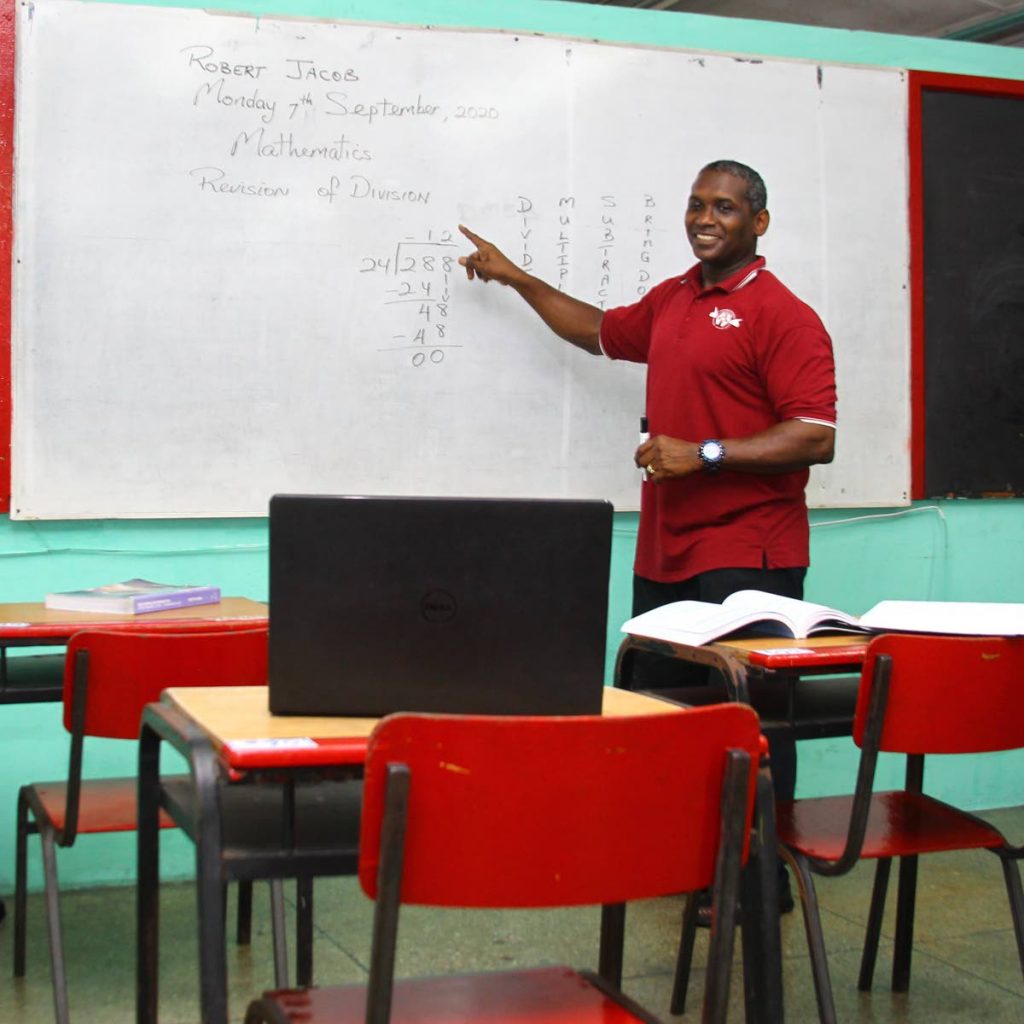
A lack of connectivity or devices, hours of extra work to prepare material for virtual classes, and unreasonable demands for data from the Ministry of Education are some of the issues teachers are having when it comes to teaching online.
One teacher from a primary school in east Trinidad explained that, because of copyright issues, teachers are not allowed to take pictures of textbook pages to send to students, and students are not allowed to write in their workbooks, take a picture and send it to teachers.
Because she cannot use textbooks or workbooks, she spends hours outside of her 8.30 am to 2.30 pm working hours creating content for her students. She also cannot direct her students to read their textbooks because many of their parents cannot afford the books after not working or having their salaries cut due to covid19.
As a result, teachers have to create and type up their own questions, examples, worksheets, exercises, digital notes, slides, and other learning resources.
In addition, she teaches via WhatsApp instead of the ministry’s recommended Google Suite or Microsoft Office platforms, as most people already have the messaging app on their phones and she has had difficulties getting parents to create Google accounts.
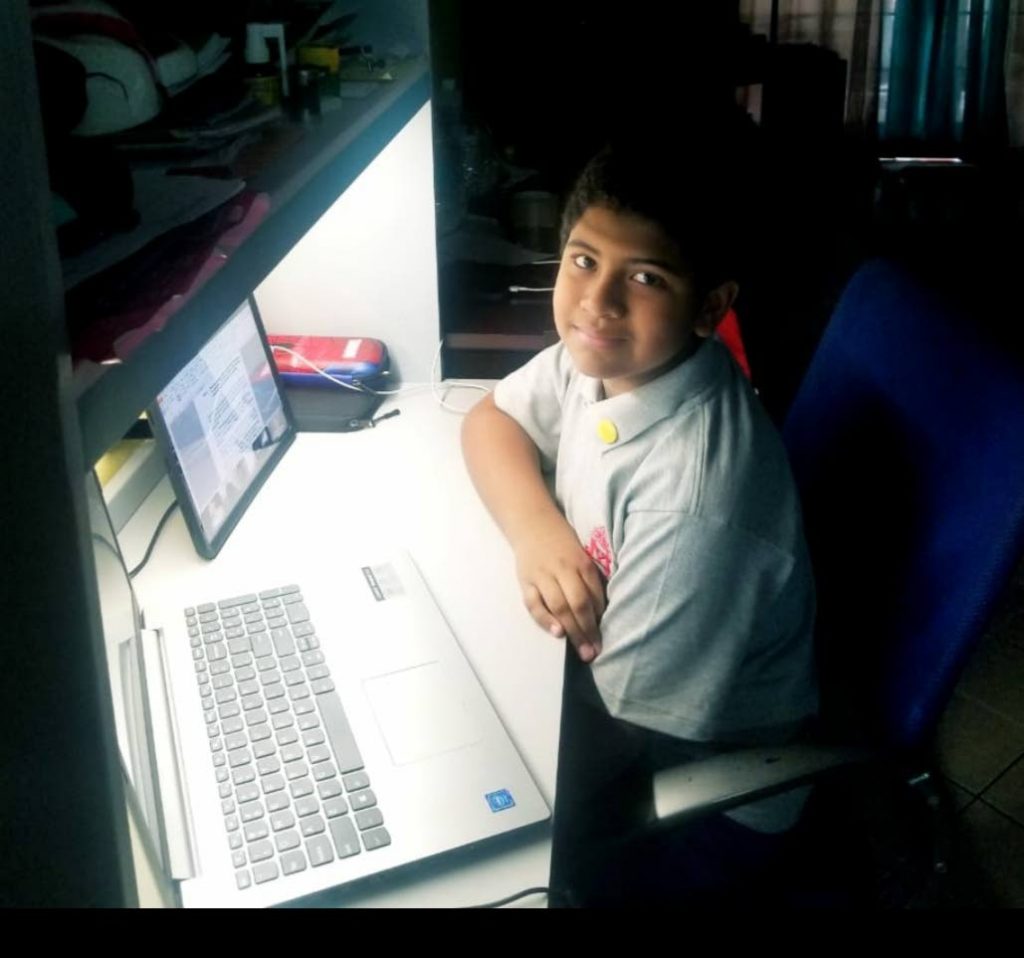
Jeremiah Auguste, a grade three student at a private school, logs on for online classes under his mother’s supervision. -
Some students do not have devices of their own and have to use their parents’ phones. So, if their parents go to work or need to use their phones the students have no access to classes. They usually have to miss classes and wait until their parents get home or finish their business to access the class information packages via WhatsApp.
Some siblings may need to share devices, and parents may opt for their younger children to join classes while the older ones have to make do with the packages. Sometimes, she said, the internet connection is not good and students get disconnected. As a result, she often has to call students individually to explain the work, give them questions to work on and then call them back to get the answers.
Then there are those who do not have access to the internet at all. As a teacher of standard four students, she said discipline is usually not a problem.
Discipline varies for each school, and generally indisciplined students are blocked from a class. If the student continually disrupts classes or does not attend online classes without a reason from a parent, parents are informed, the situation is turned over to the school’s administration, and sometimes a social worker will meet with the parents about the matter.
The teacher has an issue with the distractions many students have at home.
“Many of them live with extended family and some family members are inconsiderate. Not everyone has rooms of their own or a quiet space to work in.
“You have male family members walking around bareback... people playing the TV or radio loudly, or making noise in the background. It’s crazy.”
Also, she said some parents do not cooperate with teachers or engage in any kind of supervision for their children’s classes, or homework, so some students do not complete work. Then, when it’s time to review or do exercises, they do not know what is going on and she has to go through everything again.
When Miss is also Mummy
She herself has two teenaged children in forms three and four, as well as a one-year-old baby.
She said the situation is difficult because, even though her older children are old enough to sit through a day of class, she still has to check up on them every so often, usually between her classes. Thankfully, she gets help with the baby from family members.
“Hours of consistently sitting in front of a screen is new to them. They are very tired and my younger daughter is getting headaches even though she wears glasses. And the dynamics of asking teachers for help via email or sending messages is taking some time to get used to.”
While technology is the way forward, she said the ministry did not plan online schooling properly. Many teachers are not prepared for online classes as they only got a week or two of warning, she said, and they need more time to plan for classes. The amount of contact hours required by some teachers is not realistic.
A teacher from the south east school district has similar issues.
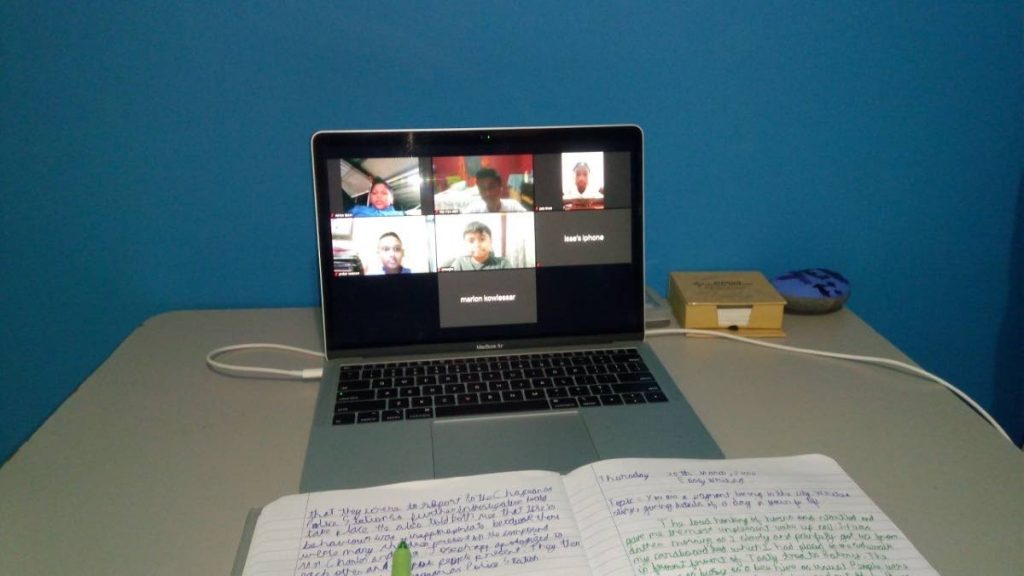
She said teachers spent weeks waiting for information from the ministry about online classes, then they had to prepare schools for reopening on September 1 by installing sinks and making other adjustments, as public health measures. At the “last minute” she said, they were told to prepare for online classes.
In addition, she said the data collection aspect of the job was just “dropped in their laps.”
Many children at her school are in a low socio-economic bracket and have no devices or connectivity, so numerous hard-copy packages have to be prepared for parents to pick up and drop off on a weekly basis.
“In the first place, the area has poor phone coverage so it’s difficult to even get a phone call in. But a lot of the children who need packages are in WhatsApp groups with their teachers so they can ask questions. But the others? We just have to hope and pray that their parents are able to help them.”
She too also has a child in primary school who struggles with online classes, and has to monitor him to ensure that he understands the teacher and does not get up to go play or pick up a toy instead of paying attention.
In addition, when he has an assignment, she has to type it for him.
“It’s very stressful. Teachers are extremely exhausted and under some level of strain, especially because everything has to be prepared in advance, in a different way from how we would have prepared before, and it all has to fit within a time frame. Then, as a parent, you have even more work to do with your children.”
She urges parents to be more involved in their children’s education as, especially now, they are not just the teacher’s responsibility during the day. She said it was sad that some parents have yet to collect one package from the school since online classes started on September 7.
Some teachers, however, are quite pleased with the move to online classes.
How Google helps online teaching
A teacher from a Port of Spain school said he enjoys the Google Suite platform which allows for synchronous, or real-time learning, and asynchronous learning where students can be given work to complete during class.
He said a recent security upgrade allows teachers to lock their screens so no one can take it over, and there are features for developing questionnaires, and syncing YouTube videos so much more can be done than in a normal classroom.
“I only have each of my form five classes for two hours for the week. Obviously, that’s not enough. So instead up taking up that time to give them notes, I post the notes before, including questions, links to more information, videos and such so they could take their time and go through the notes. So, during the class I just explain the topic and take any questions they have and basically get more time to facilitate their learning.”
He said this system is easy for him because he has been preparing his own notes for at least eight years because he found many textbooks suggested by the ministry to be outdated.
Also, for the hardcopy packages for students who have no access to online classes, he makes even more expansive notes, includes examples, outlines certain parts of textbooks for them to read, and even includes links in case they visit a relative or friend with internet access.
He said he is not experiencing discipline problems with his form five classes but when the lower school had orientation through Google classroom, people from outside of the school got the link and disrupted the event.
One person was able to take over the screen sharing so everyone could see their screen, and showed porn while some parents ended up cursing each other.
He also found the ministry’s data collection request deadlines to be unreasonable. He said on one occasion the ministry sent out a request to teachers for information from parents on a Saturday afternoon and gave the deadline as Monday at noon.
“The ministry is constantly doing that kind of thing. We had to abandon synchronised classrooms that we worked so hard to set up to collect information that I personally find was invasive, and with no notification to parents so they were sceptical and reluctant to give the info.”
Demands for data ‘ridiculous’
A teacher from the Victoria district also believes the demands from the ministry are “ridiculous.” She said teachers have to submit all lessons in advance, even if no one is expected to collect the hardcopy packages. Also, the ministry insists that the roll call and other administrative work for classes be sent at times teachers are still doing attendance or during assembly.
She said it is not an accurate indicator of students who attend online classes because some do not attend assembly, some are late, and others are there for the roll call but then do not attend classes.
“It’s extremely stressful. I haven’t had an anxiety attack in years but I have already had one since the team started. Despite that, I am very grateful to be home during this pandemic because I suffer from hypertension and other underlying conditions. I think it’s a good initiative of the ministry to move forward with online teaching.”
Even though the new system of preparing for class was easy for her, it is still time-consuming as she had to prepare two sets of packages, those for her online classes, and those for students who cannot attend. It extends her works days to ten or 12 hours.
She already has Power Point presentations prepared because she previously used them in her classes. But now she makes video and audio records of her online classes and posts them to a private YouTube channel that only her students can access, as some students have to wait until their parents get home to use their phones, or they have to share a device with their siblings and so do not attend classes.
For those who have no online access at all, the notes have to be more detailed, explaining information that would have been covered in videos, writing out instructions step by step, and answering anticipated questions.
Some teachers do not have laptops, WhatsApp, or have yet to activate the e-mail addresses they received from the ministry, and about 30 per cent have yet to go through training on the online systems.
However, teachers can access laptops from the school and if there were too many distractions at home, they could work at the school.
The teacher appealed to parents to keep the line of communication open as some actively avoid calls from teachers when their children are having issues. She asked that they check on their children to ensure they attend classes, even if the parents are not at home.
A teacher at a secondary school in Diego Martin said his workload doubled with online classes. He said teachers usually know what they want to teach and it flowed when they were in front of the students. However, with online classes, everything has to be planned in minute detail.
One good thing about it, he said, was that it takes the pressure off teachers knowing that everyone has the same information and they do not have to rely on the students’ ability to take notes.
He said the ministry provided Google Suite and Microsoft Office for teachers and students to use. However, in his opinion, Google is more reliable. He questioned why the ministry is paying for two different platforms that could do the same things instead of purchasing only one and using the extra money to buy devices for students.
Despite having two available platforms, he pays US$15 a month for Zoom so he could access all its features to make the online class resemble the classroom as much as possible. There, he either connects a tablet for digital drawing or uses Zoom’s whiteboard option to write on the screen and so better interact with students.
He said online learning is good for those who want to learn and those who are confident enough to ask questions. However, he cannot keep track of all the video footage and so cannot read everyone’s body language and, therefore, cannot tell if someone is confused and simply not saying anything.
His students are mostly from low or medium-income homes. He lamented that 120 students have not been seen online since the beginning of the term. For them, in addition to the hardcopy packages, WhatsApp has been their main way of communicating as the internet connection is unsatisfactory in many areas and the children have to depend on mobile data.
In response to teachers and students’ challenges, the Education Ministry has an ongoing initiative for the sponsorship of laptops and devices for students by the corporate sector. Government also plans to ensure free internet access is provided to students.
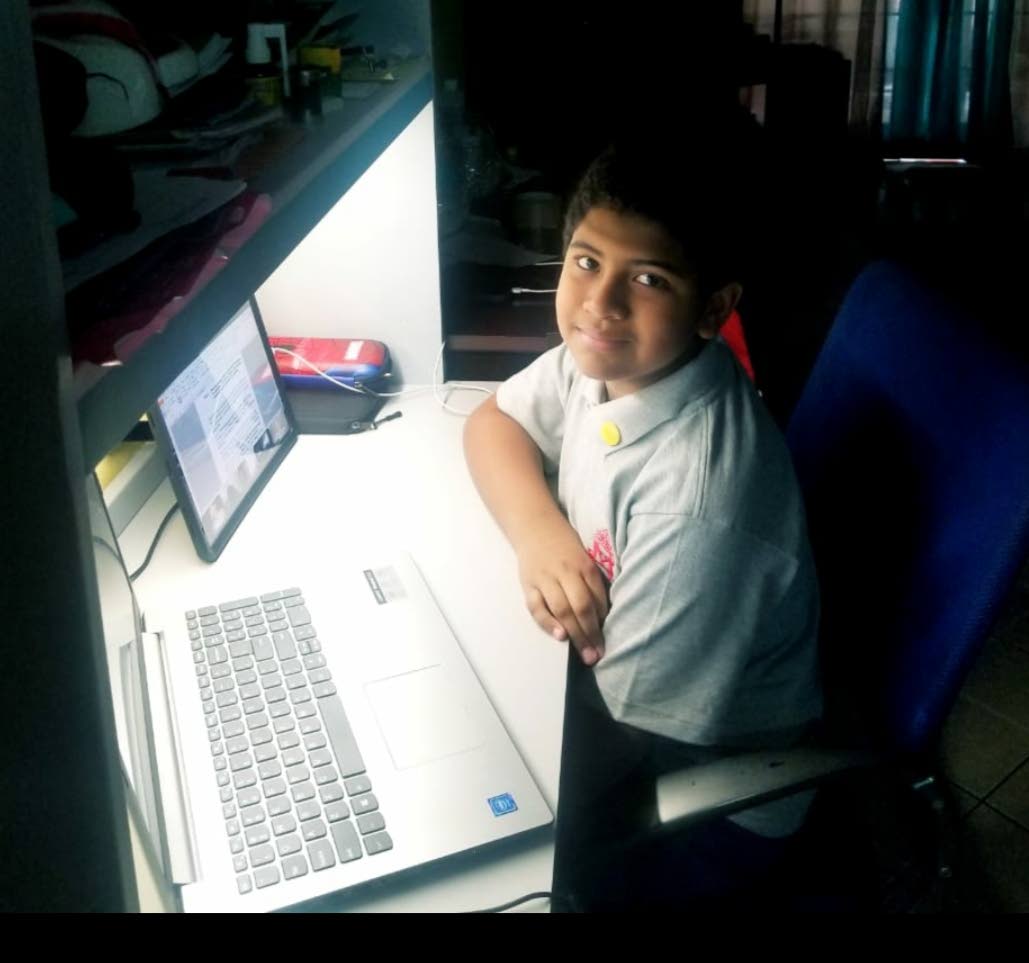
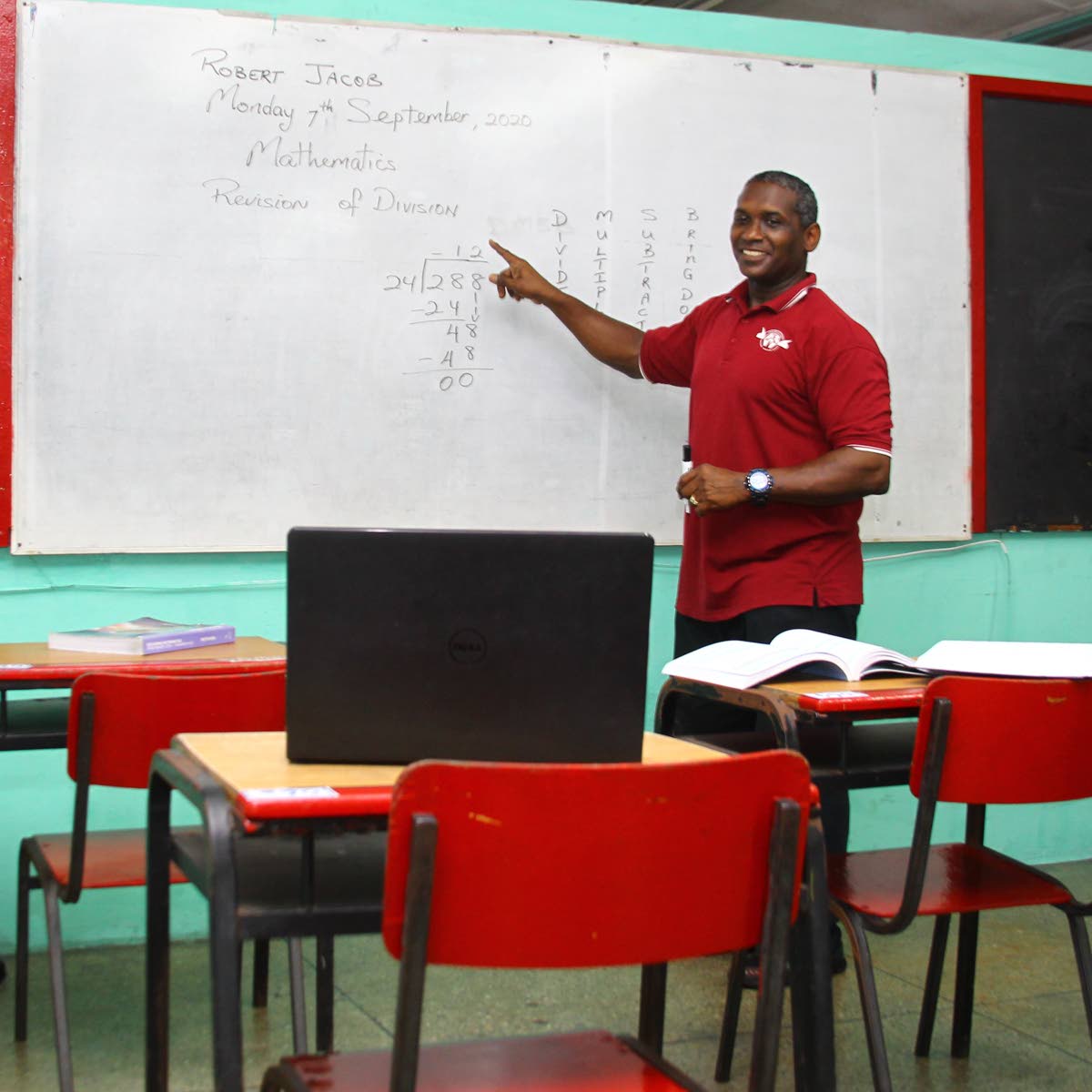


Comments
"Covid19 101: Students can be out of touch at home"